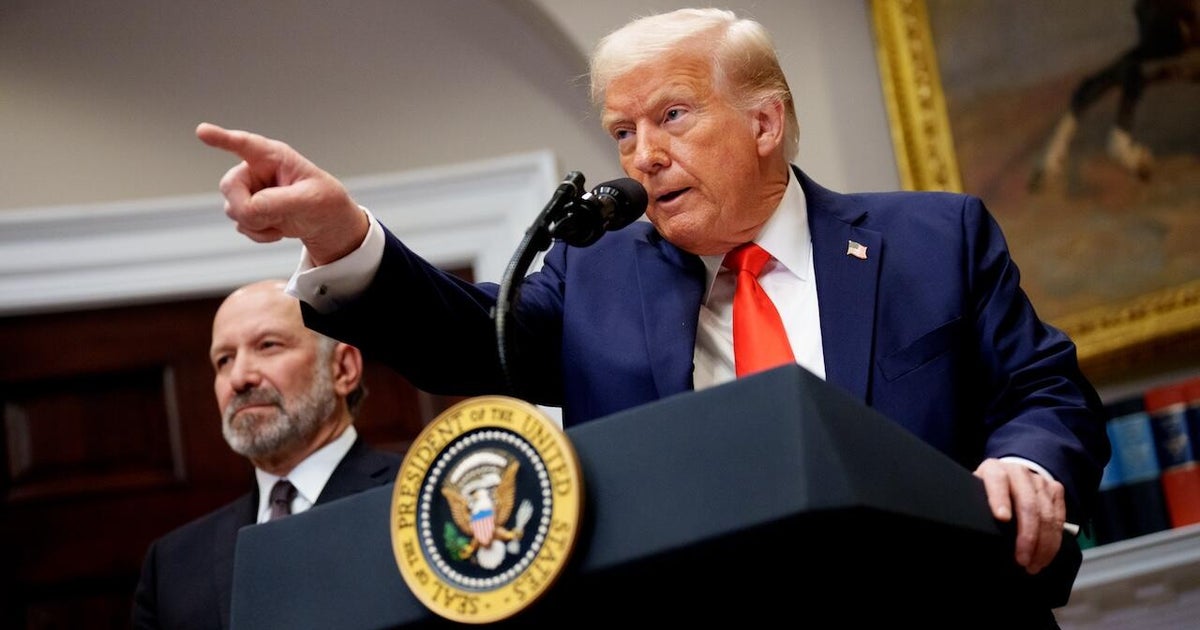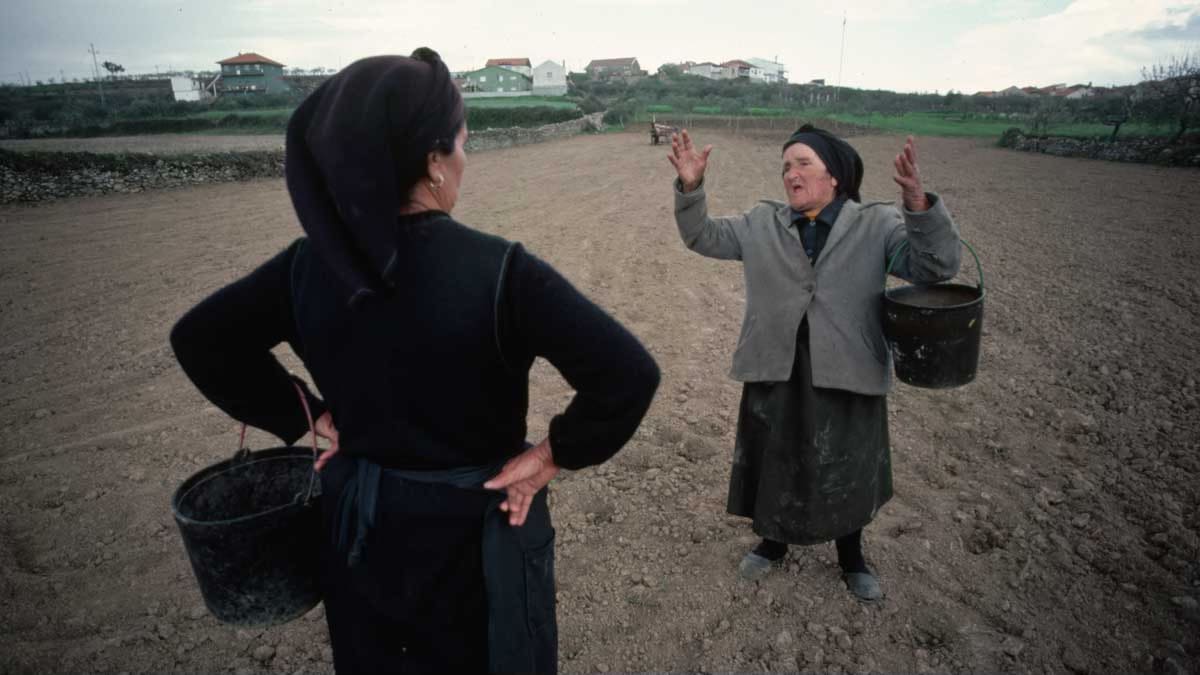Green New Deal: Ocasio-Cortez says "green" policies can save economy
Rookie lawmaker Alexandria Ocasio-Cortez is making a splash in Congress by championing everything from sharply higher taxes on the rich to immigrant rights. But arguably her biggest challenge -- one that could conceivably affect every American -- is to breathe life in Washington for the "Green New Deal."
The initiative's audacious goal: Convert the entire U.S. economy to renewable energy within 12 years, while also sparking a massive burst of job-creation and technological innovation. Ocasio-Cortez and Sen. Ed Markey, D.-Mass., are introducing their plan on Thursday, with Ocasio-Cortez telling NPR that a "larger solution" is needed to deal with the challenges of climate change.
- Does Alexandria Ocasio-Cortez want to soak the rich?
- WATCH: Alexandria Ocasio-Cortez: The rookie congresswoman challenging the democratic establishment
The plan, outlined in a non-binding resolution posted via NPR, is meant to provide a framework for the initiative. A non-binding resolution doesn't constitute a formal legislative proposal, but rather signals a lawmaker's intent.
"Even the solutions that we have considered big and bold are nowhere near the scale of the actual problem that climate change presents to us," Ocasio-Cortez told NPR Thursday.
Here's a look at what the proposal consists of:
Zero emissions
The push comes just as a new annual federal climate report concludes that the last five years have been the hottest on record, with scientists linking that trend to the surge in human-related greenhouse gases. According to the non-binding resolution, initiatives include:
- Net-zero greenhouse gas emissions via a "fair and just transition for communities and workers"
- Creation of millions of "good, high-wage jobs"
- Investment in infrastructure and industry
- Prevention and repair of "historic oppression to frontline and vulnerable communities"
- A goal for 100 percent renewable energy in the U.S.
- Clean air and water, climate resiliency, healthy food, access to nature, and "a sustainable environment for all for generations to come"
- Investments in buildings to make them more energy efficient
- "Eliminating pollution and greenhouse gas emissions as much as technologically feasible"
- "Universal access" to clean water
"A suite of economic policies"
The proposal's name deliberately echoes President Franklin D. Roosevelt's New Deal, the label for a sweeping group of federal programs enacted in the 1930s to end the Great Depression. In the Green New Deal's case, proponents are outlining a group of policies to shift the U.S. economy toward mitigating climate change and its impact.
The Sierra Club, a major supporter, puts it this way: A Green New Deal "is not a single law, but a suite of economic policies to deliver better job opportunities, less climate pollution, cleaner air and water, and more resilient communities."
Progressive activists are hoping that support for the ambitious deal will become a litmus test of sorts for 2020 Democratic presidential candidates. Oregon Democratic Sen. Jeff Merkley, who's mulling a presidential bid, said the issue should be an integral part of his party's agenda going forward.
On CBSN's "Red and Blue," Merkley outlined what he believes should be the key components of a comprehensive Green New Deal.
"The core objectives are some things such as let's drive a fast transition from fossil fuel, carbon transmission-creating energy sources to renewable energy so that we save our planet. Second principal is: Let's create tens of millions of jobs as we renovate our energy economy," he said Tuesday. "A third principal: A just transition for fossil fuel workers so that no one is left behind and so we show respect and gratitude for all the work they've done to power economy is the decades past."
How will it get funded?
"The short answer to 'how we will pay for' the Green New Deal is easy," Robert Hockett, a Cornell public policy and law professor and adviser to Ocasio-Cortez, wrote in a piece for Forbes last month. "We'll pay for it just as we pay for all else: Congress will authorize necessary spending, and Treasury will spend. This is how we do it -- always has been, always will be."
Critics point to estimates of the cost of converting to 100 percent renewable energy reaching into the trillions. So far, Ocasio-Cortez has only floated ideas for how to pay for it -- including a fee or tax on carbon emissions and her idea for a marginal tax rate of 70 percent on earnings of more than $10 million for wealthy Americans, a proposal she outlined for CBS's "60 Minutes" last month.
Where did it originate?
The idea for the Green New Deal has multiple sources, including environmentalists and scientists looking for ways to combat climate change. Ocasio-Cortez championed the concept, vaulting the phrase "Green New Deal" into headlines and news broadcasts during her campaign and since the 2018 elections.
"Mother Nature has awakened so many Americans to the urgent threat of the climate crisis, and this proposal responds to the growing concern and demand for action," former Vice President Al Gore, now an environmental activist, said in a statement on Thursday.
A December poll of registered voters conducted by the Yale Program on Climate Change Communication and George Mason University showed 92 percent of Democrats and 64 percent of Republicans support the idea. And many Democratic 2020 presidential hopefuls have reportedly signed on to the idea, according to Axios.
Ocasio-Cortez and Markey are drumming up support as they draft specifics for legislation. "It's happening," Ocasio-Cortez tweeted after Axios reported some details of her memo seeking support from colleagues.
As a member of the House in 2009, Markey was the lead author of the American Clean Energy and Security Act, which sought to address climate change issues. It included a renewable energy standard and a carbon cap-and-trade system. It passed the House but never made it out of the Senate.
The lawmaker brought Varshini Prakash as his guest to President Donald Trump's the State of the Union address on Tuesday. Prakash is executive director and co-founder of Sunrise, a group dedicated to ending climate change that's currently holding livestream events to support the Green New Deal.
Markey's office is now working on companion Green New Deal legislation for the Senate to Ocasio-Cortez's House plan, though that's not yet finalized, according to a recent report from the Boston Globe.





